Blog Posts Tagged MEMS Module
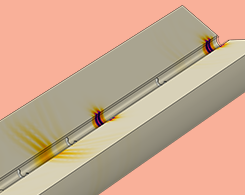
How to Model Piezoelectric Devices as Both Transmitters and Receivers
Certain types of transducers can act as both transmitters and receivers. We demonstrate how to use 2 features for modeling this type of piezoelectric device.

How to Activate Material in Simulations of Manufacturing Processes
Do you model manufacturing processes such as welding or additive manufacturing? You can activate or deactivate a material in a material deposition simulation using specialized functionality.
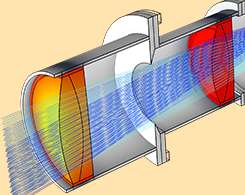
How to Perform a STOP Analysis with COMSOL Multiphysics®
Interested in structural-thermal-optical performance (STOP) analysis? We go over the theory, background, and how to perform such an analysis in the Ray Optics Module.
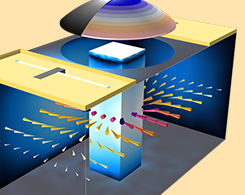
High-Fidelity Modeling of a Tunable Filter via Multiphysics Simulation
Tunable cavity filters can enhance the development of high-speed, wireless communication networks. To optimize these devices for such a purpose, we can turn to high-fidelity modeling.

Analyzing a MEMS-Based Strain Gauge Design with Simulation
MEMS-based strain gauges are helpful in both civil engineering and biomedicine. Read about a team of researchers who used the MEMS Module to analyze strain gauge designs.
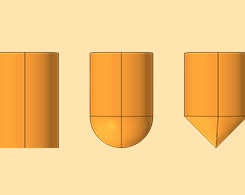
Analyzing Kelvin Probe Designs with COMSOL Multiphysics®
Kelvin probes, a type of MEMS technology, provide a nondestructive and contact-free way to measure the work function differences of various material combinations.
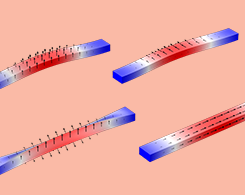
How to Analyze Eigenfrequencies That Change with Temperature
In certain scenarios, such as in the MEMS field, the eigenfrequencies of a device can change with temperature. Here’s a guide to studying temperature-dependent eigenfrequencies.
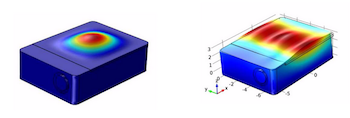
Designing a Sensor Package for a High-G Accelerometer via Simulation
To design a piezoresistive sensor package for a high-G accelerometer, researchers turned to multiphysics analysis. They then verified the simulation results with experimental data.
